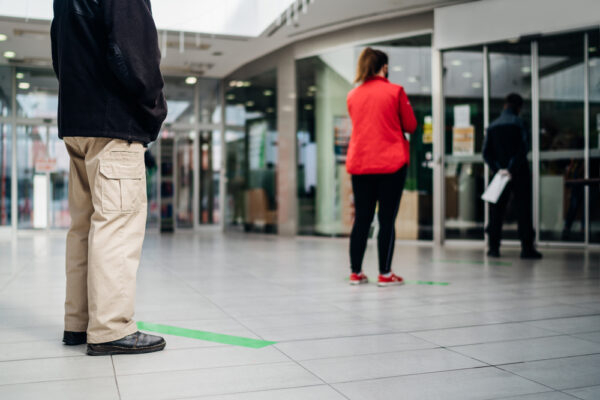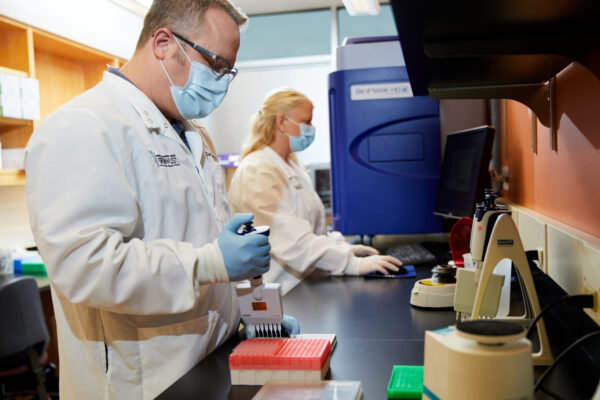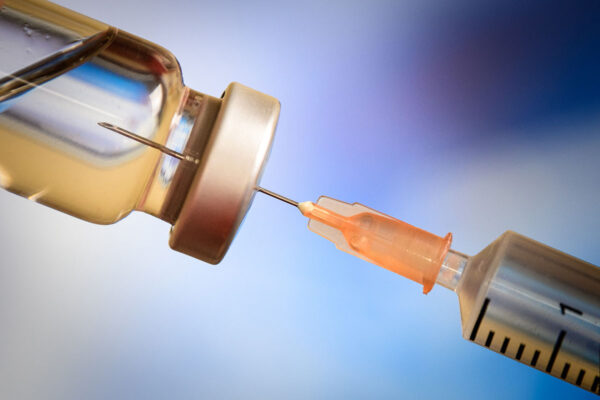Patti receives NIH grants to research the connection between metabolic pathways and diseases like COVID-19
Gary Patti, the Michael and Tana Powell Professor of Chemistry in Arts & Sciences, has received grants totaling $1.5 million from the National Institutes of Health (NIH) for research on metabolic pathways and their connection with diseases like COVID-19. Staff scientists Dhanalakshmi Anbukumar and Miriam Sindelar, working with Patti in the Department of Chemistry, are spearheading the project, titled “Leveraging […]
Who Knew WashU? 8.26.20
Question: The first woman to be appointed U.S. poet laureate served on the faculty at WashU. Who was she?
Identifying emerging diseases focus of new international collaboration
The School of Medicine is one of 10 sites and a coordinating center forming the Centers for Research in Emerging Infectious Diseases, funded by the National Institute of Allergy and Infectious Diseases, part of the National Institutes of Health (NIH).
Meteorite study suggests Earth may have always been wet
A new study finds that Earth’s water may have come from materials that were present in the inner solar system at the time the planet formed — instead of that water being delivered by far-reaching comets or asteroids. The research co-authored by physicist Lionel Vacher in Arts & Sciences at Washington University in St. Louis is published Aug. 28 in Science.
Home inequity: Study finds income, job rut for millions in U.S.
At a time when evictions and mortgage defaults have been likened to an oncoming tsunami across America, a big-data study of loan-to-value ratios in the wake of the 2007-08 recession carries a cautionary forecast for vexing economic weather ahead: The higher a worker’s outstanding mortgage relative to their home value, the worse their future income growth and job mobility.
Forsyth road work Sept. 1-2
The city of Clayton will be resurfacing Forsyth Boulevard between Wrighton Way and Big Bend on Tuesday and Wednesday, Sept. 1 and 2. Access to Danforth Campus lots and garages will be affected, and the campus circulator and West Campus shuttles won’t operate during the work.
Flores receives grant to use artificial intelligence algorithms to study metal alloys
Katharine Flores, professor of mechanical engineering and materials science at the McKelvey School of Engineering, has received a three-year $379,392 grant from the National Science Foundation to use artificial intelligence-based algorithms to identify which metal alloys are best to form metallic glasses. Flores and her team will use AI to identify liquid compositions that could be good […]
Some states may have missed optimal timing to enact virus mitigation efforts
A recent study from the Brown School at Washington University in St. Louis provides the first explicit analysis of the timing, determinants and impacts of mitigation interventions for all states and Washington, D.C., during the first five weeks of the pandemic. States initially with high prevalence rates of COVID-19 enacted mitigation interventions, like social distancing, in a delayed fashion, which explained why the case/death counts of COVID-19 in the U.S. remained high for a long period of time.
Washington University develops COVID-19 saliva test
Washington University School of Medicine in St. Louis has developed a saliva-based test for COVID-19 that is faster and easier than the swab tests currently in use. The test could help simplify and expand the availability of COVID-19 diagnostic testing across broad populations.
Nurses over drivers? Elderly over youth? … Who gets vaccinated first?
In this age of coronavirus, with vaccine experimentation moving at historic pace to the clinical trials phase, the ideal inoculation policy would emphasize age more than work-exposure risk, according to a study involving Washington University in St. Louis economists.
View More Stories







